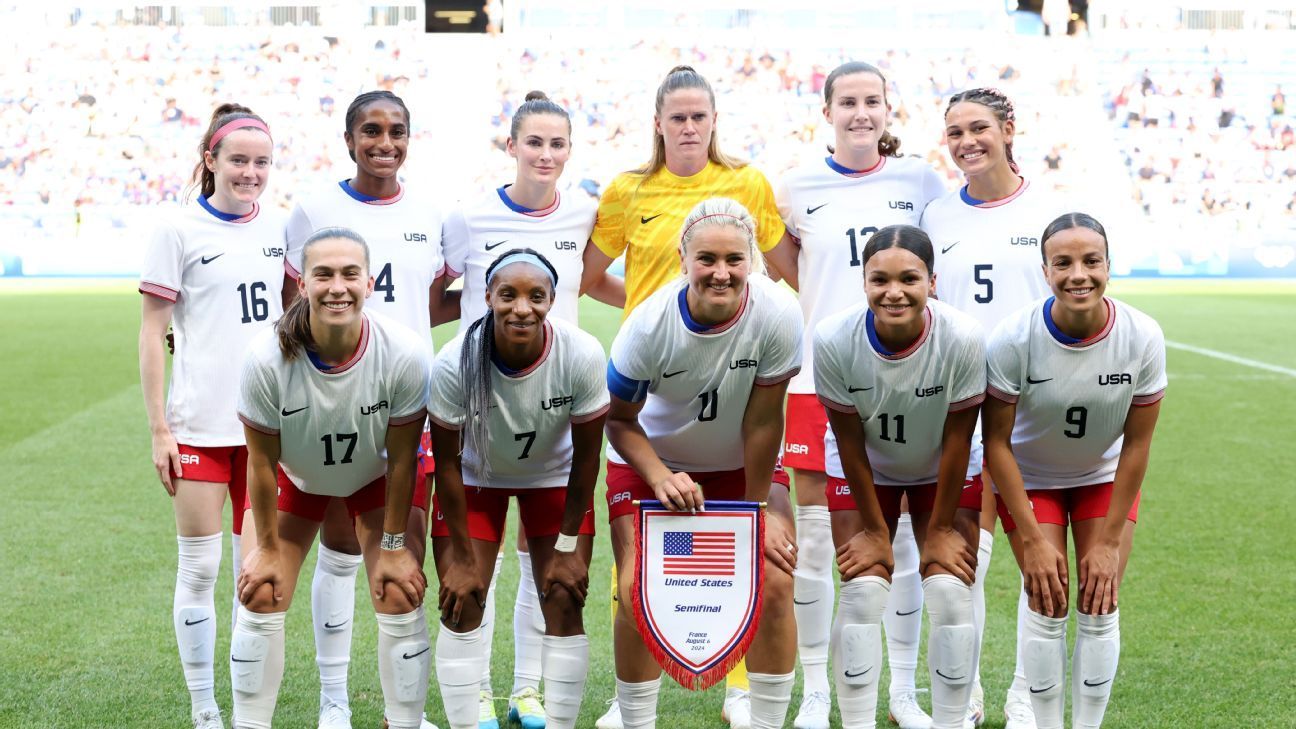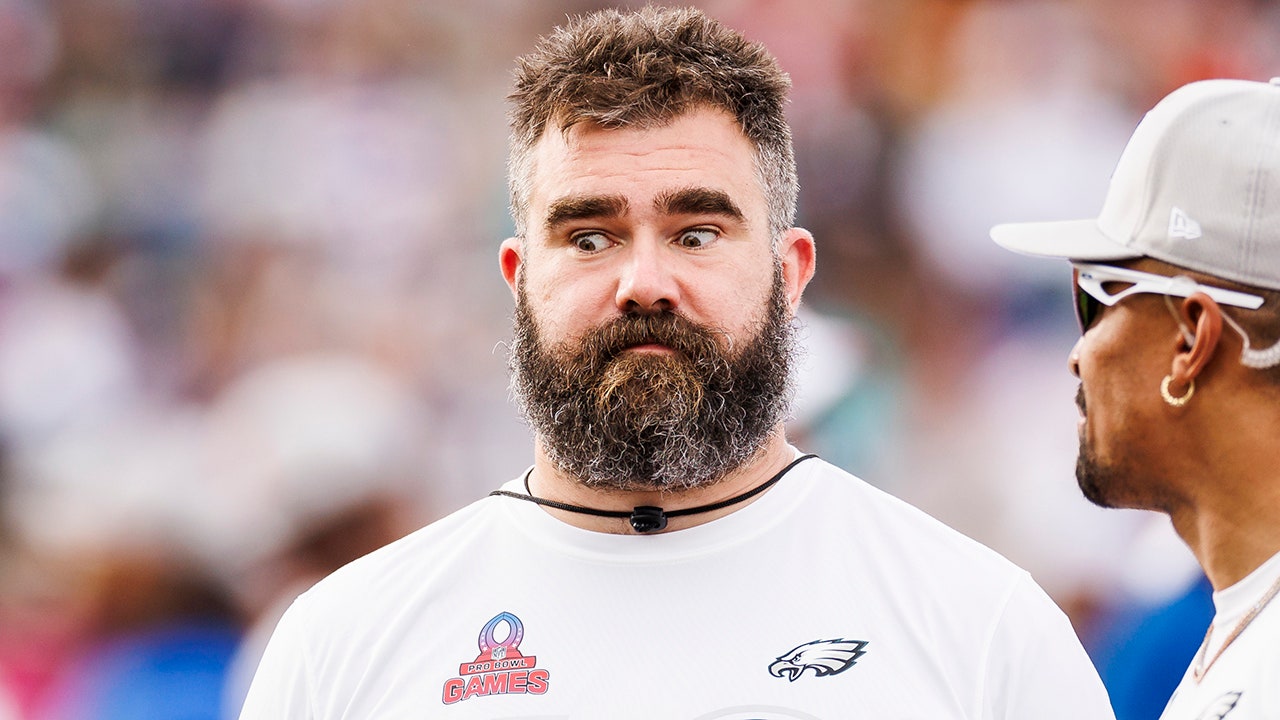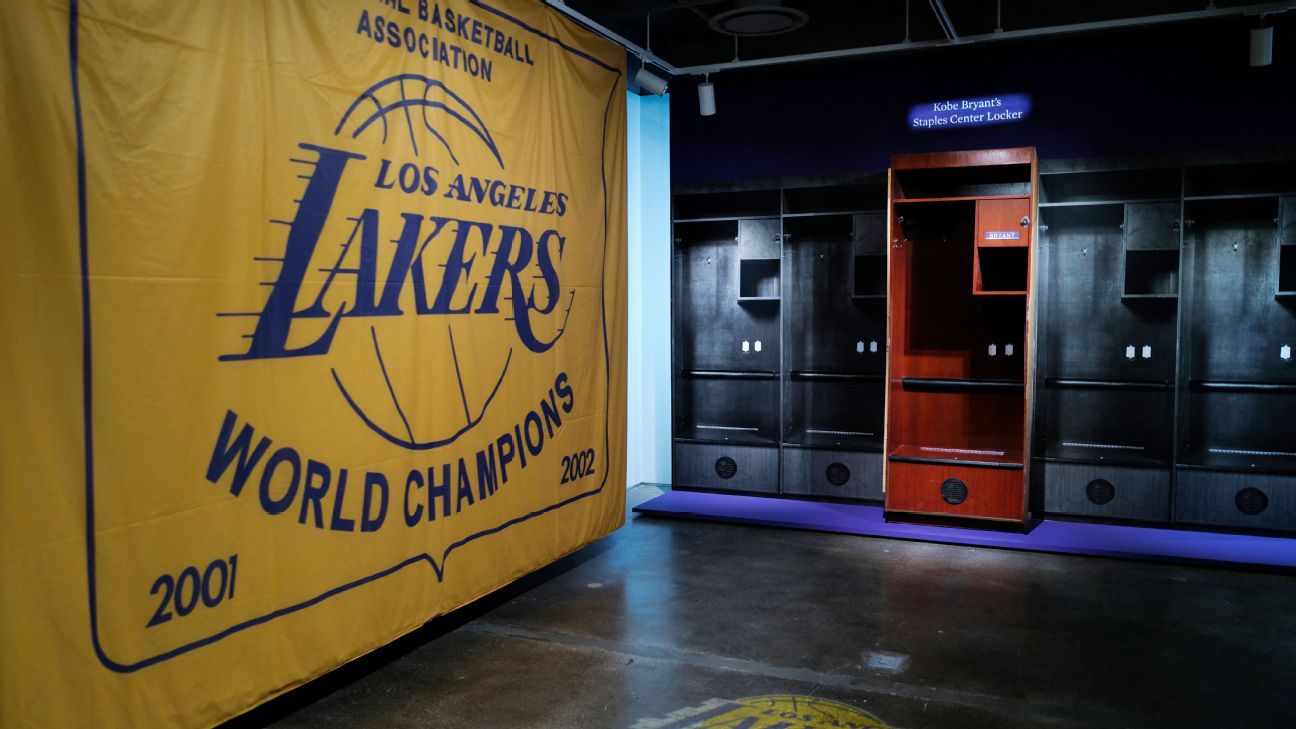PARIS — Emma Hayes wants her U.S. women's national team players to train together, prepare together and play together as a unit on the field.
She also really wants them to sing together.
Hayes, who began coaching the USWNT in June, has stressed the importance of having fun for her team and, among other activities, introduced a karaoke machine to the group that has become an essential part of the Americans' Olympic experience.
At a news conference before Saturday's gold medal match against Brazil, captain Lindsey Horan and Hayes spent several moments in front of a room full of international journalists debating the relative power rankings among the karaoke artists on the U.S. roster.
“It's between Mal and Rose,” Hayes began, referencing Mallory Swanson and Rose Lavelle.
“Do you think so? There might be some lesser-known candidates… like Trin,” Horan responded, offering Trinity Rodman as a contender, an argument that gave Hayes pause.
“You know what? You're right,” Hayes said, noting Rodman's excellent performance on a recent bus ride. “But I think the most outgoing ones are Rose and Mal, they have very Taylor Swift-like moves,” he said.
Horan agreed, adding that Lavelle also has the largest catalog of memorized lyrics among players.
“He doesn't even have to look at the screen,” Horan said with legitimate admiration as Hayes said, “He has cat moves.”
Horan also made it clear that she doesn't sing karaoke – “it takes a lot more out of me to be able to take the microphone” – but said that if she did sing, she would do Mariah Carey's “All I Want for Christmas Is You.”
Hayes, without hesitation, said his favorite song is the Vanilla Ice classic, “Ice Ice Baby,” which elicited a knowing nod from Horan. “I liked that song when I was a teenager,” Hayes said. “I could perform it pretty well.”
Karaoke is just one element of a number of off-field activities that American players can do in between their work. While not wanting to be too general, Hayes said she believes there are differences between what female athlete teams and male athletes can enjoy doing during their free time.
Hayes said playing video games isn't necessarily appealing to his group.
“We like to drink coffee, we like to get our nails done, and ideally there's a hairdresser there,” Hayes said. “We like to do karaoke, we like to play with Lego, we like puzzles.”
The mention of puzzles led Hayes on a different digression, singling out defender Naomi Girma and reserve goalkeeper Jane Campbell as two of the best at puzzles and Lego.
“They made a really good Statue of Liberty,” Hayes said. “It was a work of art.”
These types of off-field activities are important, Hayes said, because the intensity of the players' schedule during this tournament can be overwhelming. Having ways to break away from football is critical and something Hayes believes is necessary to help a group come together.
“It's important for the players to have room to breathe and relax and not have everything be so formal,” Hayes said. “When we work, we work. And when we have joy, we have joy. That's very important.”
To that end, Hayes also suggested that Olympic organizers take a hard look at the football tournament's scheduling ahead of the 2028 Summer Games in Los Angeles.
The United States and Brazil will play their sixth game in 17 days on Saturday (including two that went to overtime) and have had to travel between cities several times since much of the Olympic tournament was held in cities outside Paris.
Horan said players told each other they had to “accept the torture” of such an endeavor, and Hayes said player safety and well-being must always be a priority.
“There is plenty of time to adapt the schedule or analyse it and put more time into it,” he said. “The well-being of the players must always come first.”












